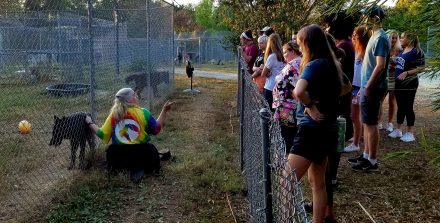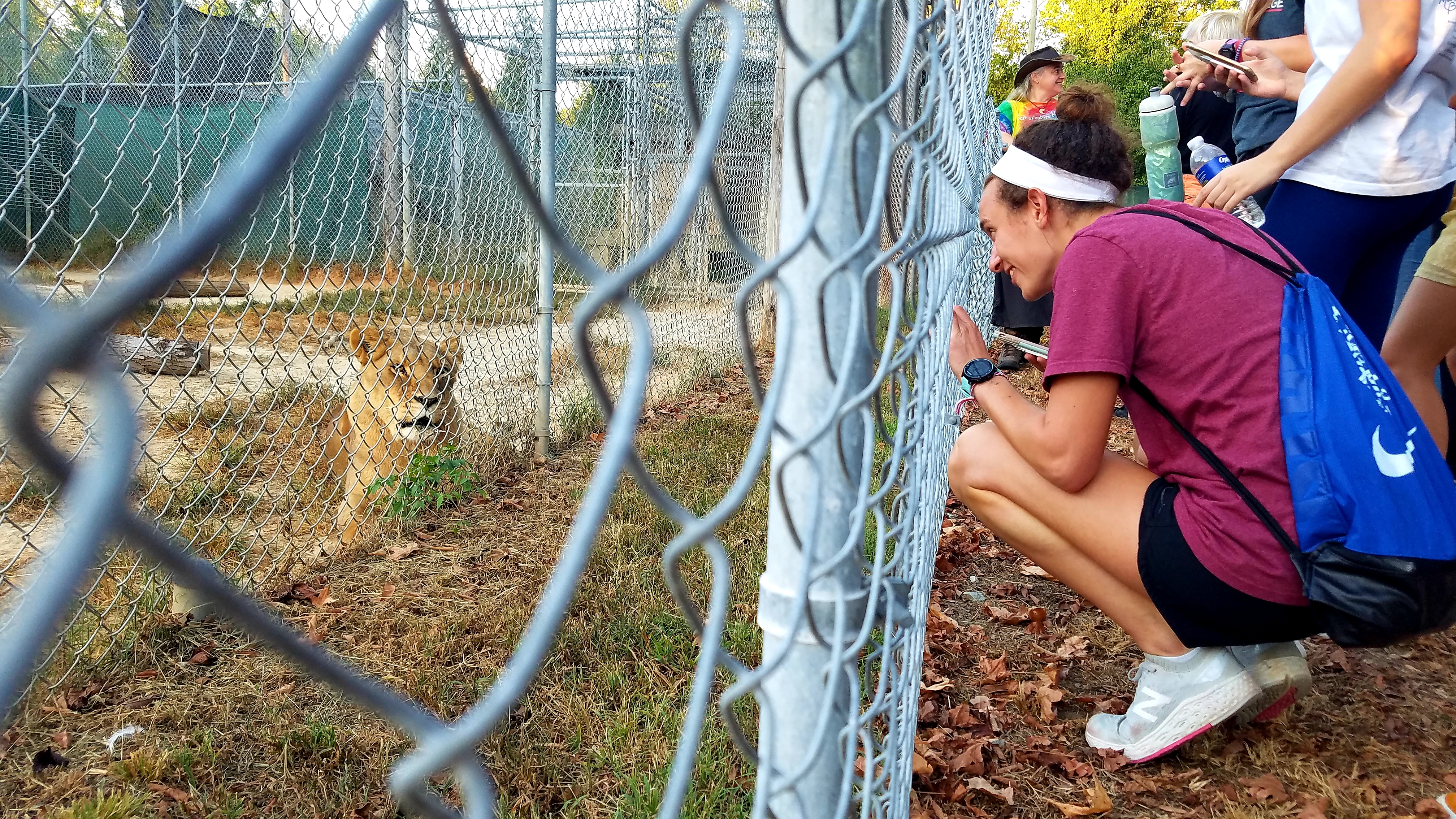Students and faculty visited the nearby Conservators Center on Tuesday, Sept. 24, for a study in how multiple disciplines merge beyond classrooms and research.
For 61 first-year Elon College Fellows, a recent visit to a nearby exotic animal park offered more than an opportunity to see lions, tigers and other exotic animals up close.
Fellows will use Tuesday’s trip to the Conservators Center to examine how multiple disciplines intersect outside of the classroom as part of their COR 110: The Global Experience courses.
The Conservators Center is a zoological park and wildlife conservatory at the edge of the Alamance-Caswell County line north of Burlington. The center was founded as an educational nonprofit 20 years ago, providing care for animals in need, and over the years has become a regional attraction. It’s home to more than 70 animals and 21 species, including large predators.

“As a nonprofit focused on caring for animals, educating people, and advocating for species, it relies on input and skills from across the disciplines,” said Kim Epting, associate professor of psychology and chair of the Elon College Fellows Advisory Committee. “Arguably, most nonprofits or businesses have multidisciplinary angles. Indeed, most hire employees with a range of degrees across the branches for different positions. The Animal Park at the Conservators Center, however, is a unique —and to many, unexpected — opportunity in our local community.”
Dubbed the Big Cat Colloquium, it’s becoming a tradition in the Fellows program. The unique experience offered at the center makes for an engaging and memorable opportunity to examine the interplay among the three branches encompassed by the Fellows program: arts and humanities; mathematics and natural sciences; and social sciences.

Biology, biochemistry, ecology, engineering, physics, psychology, and narrative storytelling are just a few of the disciplines that go into creating and maintaining a zoological park, professors said. The Fellows will use their site-specific analysis in future Core 110 assignments.
Will Dowling ’23 hopes to major in computer science. He was interested in the physics and engineering skills that went into building the animal enclosures to keep both the large predators and human visitors safe.
The Elon College Fellows is a four-year program focused on research and relationships within the arts and sciences. It aims to “encourage passion, curiosity and responsibility in appreciating the overlap and distinctions” across disciplines, Epting said. “We hope that students develop analytical habits of mind that allow them to approach problems from multiple perspectives or even multiple disciplines.”
Like Epting, Associate Professor of English Kim Pyne is a volunteer at the Conservators Center, leading educational tours for visitors there. She sees value in reorienting thinking around places and processes we might otherwise take at first glance.

“The Center is an organization that has both human education and wildlife welfare at its heart. This means drawing from scientific knowledge that underpins our standards of care and our educational messages,” Pyne said. “But it also means understanding how human needs—physical, cognitive, sociocultural — are at play in husbandry practices, in educational experiences, in even the design of facilities. And how economics shape all of that, too.”



